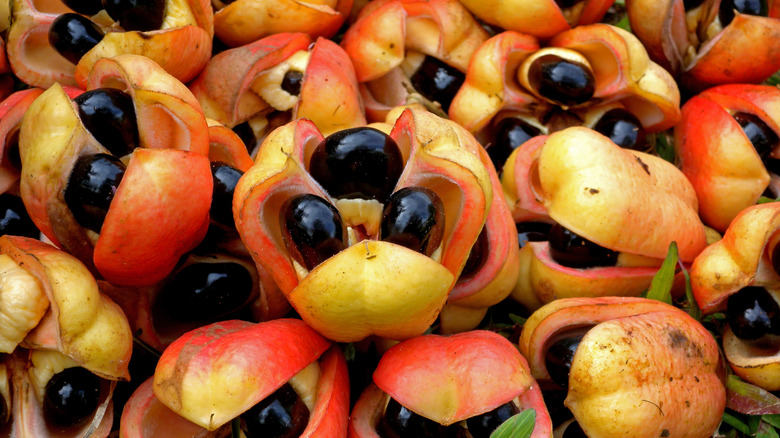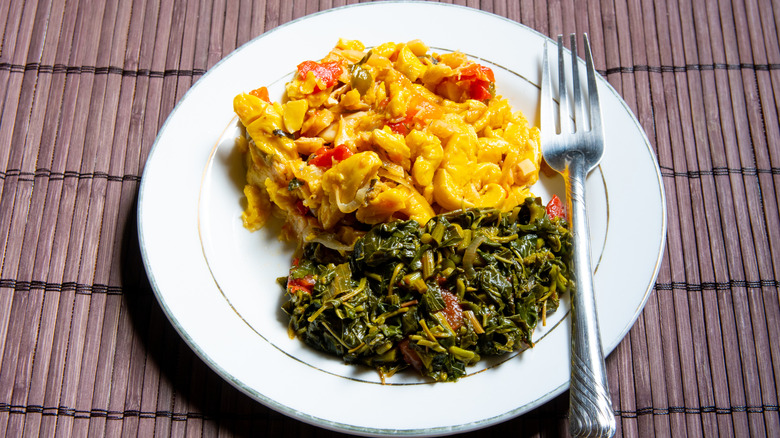Why Jamaica's National Fruit Is Illegal In The US
Jamaica's national dish, ackee and saltfish, is a beloved staple and source of cultural pride. But for many years, its star ingredient, the ackee fruit, has been banned or tightly restricted in the United States. Why? The answer lies in the fruit's natural toxicity and the strict rules from the U.S. Food and Drug Administration (FDA).
Ackee is a tropical fruit native to West Africa that was brought to Jamaica in the 18th century, most likely on a ship transporting enslaved people from Ghana, West Africa. The fruit has since become a central part of Jamaican cuisine, and the ackee tree is so symbolic that it was named the country's national fruit. Besides breakfast dishes, you'll also find it in Jamaican patties, soups, and desserts.
Ackee grows in large, pear-shaped pods that turn from green to yellow or red as they ripen. When the pods open on the tree, they reveal soft, yellow flesh (called arils) surrounding large black seeds. That yellow aril is the only edible part — but only when it's fully ripe and properly prepared. And that's where things get a little tricky.
Unripe ackee contains high levels of a naturally occurring toxin called hypoglycin A, which can be extremely dangerous. When eaten in large amounts, this toxin can cause sudden vomiting, low blood sugar, muscular weakness, mental exhaustion, and, in severe cases, coma or death. That risk is why ackee must never be harvested or eaten before it has naturally opened on the tree.
Only canned or frozen ackee is sold in the United States
Luckily, ackee fruits are kind enough to let you know when they're safe to eat. Jamaicans like to describe this splitting open as the fruit "smiling" or "yawning." Even then, the fruit must be carefully cleaned and cooked before it's safe to eat.
While not entirely illegal, ackee shipments are automatically flagged and inspected before they are allowed into the United States. Only canned or frozen ackee from FDA-approved processing plants is permitted, and even then, the facility and processes must meet strict standards to ensure the hypoglycin A levels in ackee can be reduced to a safe threshold.
In other words, you can buy ackee in the U.S., but only in carefully regulated, shelf-stable forms. Sadly, you won't find it fresh at your local farmers market anytime soon. As one can imagine, the ackee restriction has caused some frustration in Jamaican communities abroad, where ackee and saltfish is more than just a meal; it's a connection to home.
Many argue that the risks can be managed with proper education and handling, as is done in Jamaica. When you consider that many foods are deadly unless you do it right (looking at you, toxic rhubarb), it doesn't seem fair. Ackee's legal limbo in the U.S. highlights the tension between cultural food traditions and modern food safety regulations. While canned ackee can be enjoyed in dishes across the diaspora, the fresh fruit remains a carefully guarded delicacy. You'll have to travel to Jamaica for the real thing.

